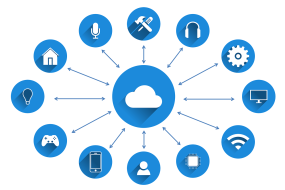
Gone are the days of manual record-keeping and reactive maintenance. Technology adoption in facility management has reshaped the way facilities are managed. From automated sensors to sophisticated software solutions, technology is at the forefront of modern facility management practices.
In the dynamic landscape of facility management, technology has emerged as a game-changer. Facility Management Technology, often abbreviated as FM Tech, refers to the use of innovative solutions and digital tools to streamline operations, enhance efficiency, and make informed decisions in managing physical spaces.
As organizations strive for efficiency, sustainability, and cost-effectiveness, technology adoption in facility management becomes crucial. Embracing these solutions not only ensures seamless operations but also positions facilities to meet the challenges of the ever-changing business landscape.
What is Technology?
Technology refers to the application of scientific knowledge, skills, and resources to create tools, systems, and processes that enhance human life and solve practical problems. It encompasses a broad spectrum of innovations, from simple tools to complex systems, all designed to streamline tasks, improve efficiency, and facilitate communication.
In the contemporary context, technology is not limited to tangible objects but extends to software, information systems, and digital solutions. It is a dynamic force that continuously evolves, influencing various aspects of society, economy, and culture.
Key Technologies in Facility Management
IoT and Smart Sensors for Real-Time Monitoring
The Internet of Things (IoT) has revolutionized facility management by enabling real-time monitoring of equipment, resources, and environmental conditions. Smart sensors provide data on energy usage, occupancy, and equipment health, allowing for proactive decision-making.
Facility Management Software
Facility management software serves as the backbone of modern operations. From maintenance scheduling to resource allocation, these tools streamline processes, enhance communication, and provide valuable insights for informed decision-making.
FM related software:
- Integrated workplace management systems (IWMS)
- Computer-aided facility management (CAFM)
- Computerized maintenance management systems (CMMS)
- Building information modeling (BIM)
- Other software like Excel spreadsheets, PowerPoint and myriad database management software
AI and Predictive Analytics for Proactive Decision-Making
Artificial Intelligence (AI) and predictive analytics take facility management to the next level. By analyzing historical data, these technologies forecast potential issues, enabling proactive maintenance, reducing downtime, and optimizing resource allocation.
It is important to have a complete understanding of your current processes, and identify the gaps you are trying to fill with a new tool. Beyond functionality, the interface needs to be intuitive enough where your team not only has the ability to easily adopt it, but also excited to use the new technology.
Benefits of Technology Adoption in Facility Management
Improved Efficiency and Resource Optimization
The integration of technology results in improved operational efficiency. Automated systems reduce manual workloads, allowing facility managers to focus on strategic planning and higher-level tasks. Resource optimization becomes inherent, leading to cost savings.
Enhanced Predictive Maintenance for Cost Savings
Predictive maintenance, facilitated by AI and IoT, minimizes the need for reactive fixes. Identifying and addressing issues before they escalate not only reduces maintenance costs but also extends the lifespan of equipment.
Data-Driven Decision-Making for Strategic Planning
The wealth of data generated by facility management technology empowers decision-makers. Strategic planning becomes data-driven, with insights into occupancy patterns, energy usage, and overall facility performance guiding long-term goals.
Challenges and Solutions in Implementing Technology
Initial Costs and Implementation Challenges
One of the primary challenges in adopting facility management technology is the initial investment. However, the long-term benefits far outweigh the costs, and organizations can explore scalable solutions based on their specific needs.
Overcoming Resistance to Technological Change
Human resistance to change poses a hurdle in technology adoption. Effective communication, training programs, and showcasing the tangible benefits help overcome skepticism and foster a culture of innovation.
Training and Upskilling for Successful Integration
To maximize the benefits of facility management technology, the workforce needs to be adequately trained. Upskilling programs ensure that employees can leverage the full potential of the technology, contributing to its successful integration.
Key Considerations Before Investing in Facility Management Technology
Before investing in facility management technology, organizations should assess their specific needs, budget constraints, and the scalability of the chosen solutions. Conducting a thorough cost-benefit analysis and seeking input from key stakeholders is essential for informed decision-making.
Future Trends in Facility Management Technology
Integration of Artificial Intelligence
The future of facility management technology involves deeper integration of Artificial Intelligence. AI-driven virtual assistants, advanced analytics, and machine learning algorithms will further enhance decision-making capabilities.
Sustainable Technologies for Green Facility Management
Sustainability will be a key focus, with technology playing a pivotal role. From energy-efficient systems, to water conservation, to waste reduction technologies, the industry will witness a shift towards environmentally conscious practices.
IoT Advancements and the Rise of Smart Buildings
Advancements in IoT will lead to smarter buildings. From intelligent lighting systems that adapt to occupancy to connected HVAC systems, smart buildings will redefine the way we interact with physical spaces.
How Facility Managers Can Ensure Data Security When Adopting Technological Solutions
Ensuring data security involves choosing reputable technology providers with robust security measures. Facility managers should prioritize solutions with encryption protocols, secure cloud storage, and regular updates to safeguard sensitive information.
Conclusion
Facility management technology is not just a tool; it’s a catalyst for positive change. The impact is evident in improved efficiency, cost savings, and the ability to proactively address challenges.
As we look ahead, technology will continue to shape the landscape of facility management. Organizations that embrace innovation and invest in the right technologies position themselves for sustained success in an ever-evolving built environment.






